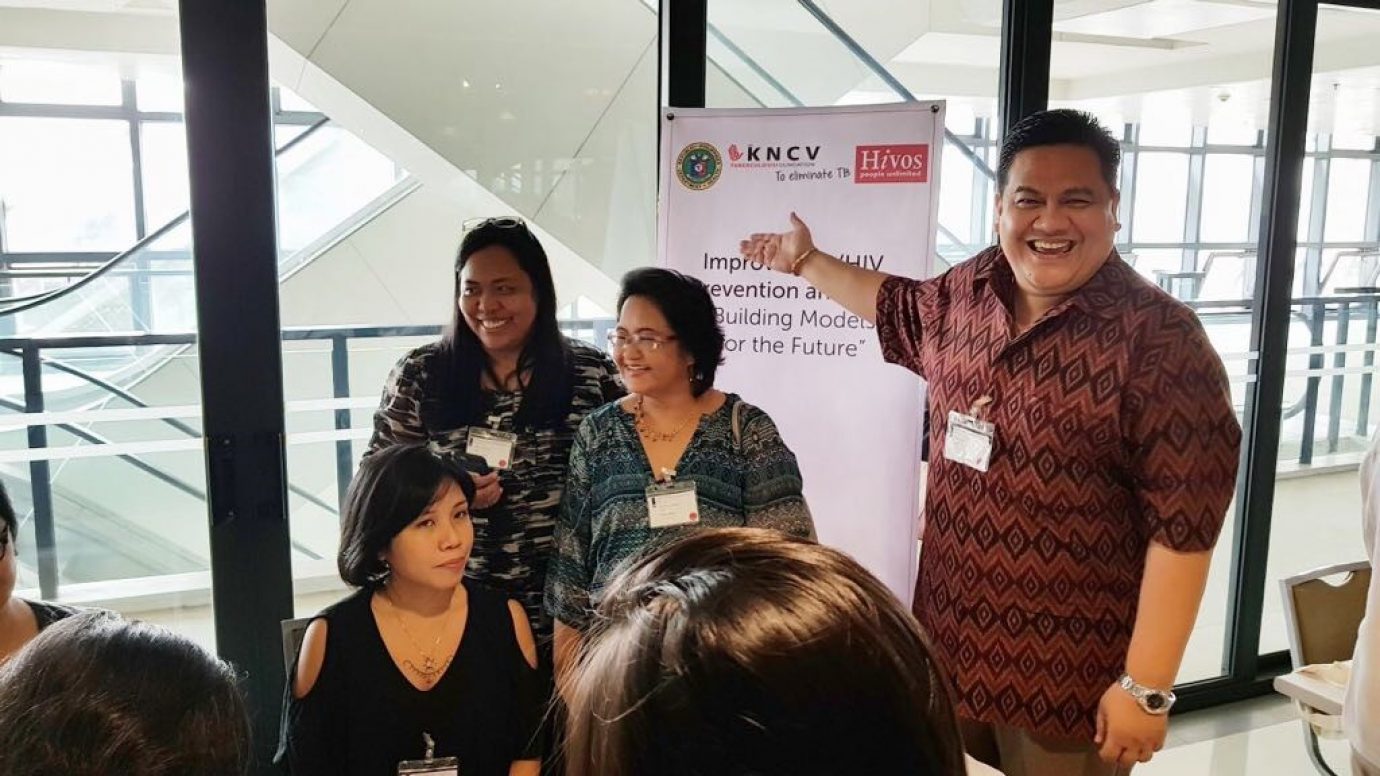Today is World AIDS Day, which bears this year’s slogan: ‘Everybody counts’. The slogan is part of the World Health Organization’s ‘Right to health’ theme. It emphasizes the need to leave no one behind, work jointly and aim for integrated HIV and tuberculosis services. Unfortunately HIV and tuberculosis (TB) are so closely intertwined that the two epidemics are in fact a co-epidemic.
Risk up to 27 times greater
People living with the human immunodeficiency virus (HIV) have a much higher risk of developing tuberculosis (TB) due to their weakened immune system. If the TB disease in people living with HIV is not diagnosed and treated quickly, it can often lead to their death. The World Health Organization (WHO) states that the risk of developing TB is up to 27 times greater for people living with HIV than those without HIV infection. Having both infections also means you have AIDS, the advanced stage of HIV. TB remains the leading cause of death among people living with HIV, with 374,000 TB related deaths in 2016.
Strengthen collaboration
‘HIV and TB programs need to strengthen their collaboration to ensure rapid diagnosis of both TB and HIV,’ writes Jeroen van Gorkom, Senior TB Coordinator for Challenge TB, KNCV led program to eliminate TB in 22 countries. Van Gorkom wrote the editorial ‘World AIDS Day 2017’ for the December issue of The International Journal of Tuberculosis and Lung Disease. Van Gorkom: ‘Patient-centered care is critical for ensuring that patients are enabled to adhere to the treatments prescribed, and to minimize loss to follow-up and mortality. Involvement of communities affected by TB and HIV in strategic planning and monitoring is key to achieving high quality patient-centered care. World AIDS Day this year carries ‘Right to health’ as a theme, showing the need to link the fight for HIV care and prevention to the Sustainable Development Goals. We are halfway through the marathon—we need to continue to run together.’
Missed patients
The Global Plan to End TB 2016-2020, developed by the Stop TB Partnership of which KNCV Tuberculosis Foundation is a founding member, calls for a ‘paradigm shift’ to be on course to end TB by 2030. The WHO estimates that approximately 4 million TB patients are ‘missed’ by programs world-wide. TB remains the leading cause of death for the 36.7 million people living with HIV globally. Country experience shows that up to 70% of these ‘missed patients’ are in contact with health service providers who are not formally linked to the national programs, and thus are neither reporting, nor receiving quality assured treatment. ‘Engaging all providers’ is an essential part of the Global Plan to End TB. Explaining how to engage all providers is also the aim of the project ‘Improved TB/HIV Prevention & Care – Building Models for the Future’.
Working together to improve TB and HIV prevention and care
The ‘Improved TB/HIV Prevention & Care – Building Models for the Future’ project aims to improve TB and HIV prevention and care in line with the Global End TB Strategy, the Sustainable Development Goals and the Fast-Track Strategy to End Aids. KNCV Tuberculosis Foundation, who leads the project, partnered with three Dutch NGOs with complimentary skills and expertise: AFEW, Hivos and PharmAccess. It’s financed by the Dutch Ministry of Foreign Affairs, the Directorate-General for International Cooperation (DGIS) as part of the Global Fund support. We are active in six countries: Nigeria, Kazakhstan, the Philippines, Nepal, Indonesia and Swaziland.
System related barriers
The project focuses on system related barriers to quality of care in the non-governmental and private health care delivery sectors, and to remove human rights and gender related access barriers to TB and HIV care and prevention. The aim is to ensure access to affordable quality care for vulnerable and marginalized key affected populations. We do so by strengthening engagement of the non-public sector (private sector and civil society) through the creation of replicable and sustainable partnership models and by making sure Global Fund grant and National Strategic Plan strategic objectives are met.
Mrs. Sade Akinbo: a co-infected patient in Nigeria
 We have enabled health care workers to integrate HIV and TB services and to give more social support. Take the example of Mrs. Sade Akinbo, a co-infected patient in one of the engaged private clinics of the project. The clinic that she visited, is run by nurse Abalunam. Mrs. Sade Akinbo is 37 years old. She has a husband and two children of eleven and seventeen. The pain in her chest and productive cough started after she found out she was HIV-positive. The pain was accompanied with headaches and fever. She went to an engaged private hospital, where she was quickly diagnosed for TB. Sade had no prior knowledge of TB. She began her TB treatment in August 2016 and started on her HIV treatment three weeks later. Her greatest concern is that her husband does not know about her HIV status. She hopes that her nurse can advise her on how to break the news to her husband in a way that will not tear the family apart. Mrs. Sade Akinbo: “I was so sick. I was getting smaller and couldn’t provide for my family anymore before I started my treatment. Abalunam is a nice nurse. And I am happy to be taking my TB & HIV drugs.”
We have enabled health care workers to integrate HIV and TB services and to give more social support. Take the example of Mrs. Sade Akinbo, a co-infected patient in one of the engaged private clinics of the project. The clinic that she visited, is run by nurse Abalunam. Mrs. Sade Akinbo is 37 years old. She has a husband and two children of eleven and seventeen. The pain in her chest and productive cough started after she found out she was HIV-positive. The pain was accompanied with headaches and fever. She went to an engaged private hospital, where she was quickly diagnosed for TB. Sade had no prior knowledge of TB. She began her TB treatment in August 2016 and started on her HIV treatment three weeks later. Her greatest concern is that her husband does not know about her HIV status. She hopes that her nurse can advise her on how to break the news to her husband in a way that will not tear the family apart. Mrs. Sade Akinbo: “I was so sick. I was getting smaller and couldn’t provide for my family anymore before I started my treatment. Abalunam is a nice nurse. And I am happy to be taking my TB & HIV drugs.”
“We are halfway through the marathon—we need to continue to run together” – Jeroen van Gorkom, Senior TB Technical Coordinator for Challenge TB
Photo caption lead photo: Born networker Andre Daniel Villanueva is technical coordinator with KNCV Tuberculosis Foundation on the Philippines and explains the project ‘Improved TB/HIV Prevention & Care – Building Models for the Future’ during a network session at the Dutch embassy in Manila.

